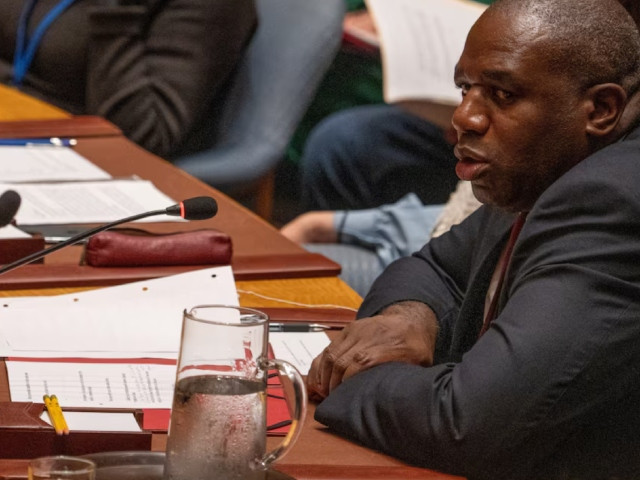
British Foreign Secretary David Lammy is set to visit Bahrain and Jordan this week as part of a Western diplomatic push to prevent further escalation in the Middle East.
This comes amidst heightened tensions following intensified Israeli strikes on Hezbollah in Lebanon.
Lammy’s visit underscores the UK’s ongoing efforts to engage with regional partners to promote restraint and avoid miscalculations that could lead to a broader conflict.
In a statement ahead of the visit, Lammy emphasized the gravity of the situation, warning that further escalation in the region serves no one’s interests.
He is expected to urge Iran and its regional proxies to halt their attacks.
“We must not waver at this critical period to achieve ceasefires in Gaza and Lebanon, to get more desperately needed aid into Gaza, and secure the release of all hostages,” Lammy said, stressing the need for diplomacy.
This mission follows a series of violent exchanges that began with Hamas’ attack on southern Israel a year ago and have since drawn in other regional actors, including Hezbollah.
The growing hostilities have raised concerns that the United States and Iran could be drawn into a larger war, with the UK taking steps to use its longstanding defense and diplomatic ties in the region to prevent further destabilization of the oil-producing Middle East.
UK Prime Minister Sir Keir Starmer has also been vocal, recently condemning a missile attack by Iran that targeted Israel.
The assault, which saw around 200 projectiles launched at Israeli targets, occurred during a conversation Starmer was having with Israeli Prime Minister Benjamin Netanyahu.
Starmer condemned Iran’s actions, calling them an "attempt to harm innocent civilians and escalate this dangerous situation further."
He reaffirmed the UK's support for Israel, reiterating the country’s right to self-defense.
Starmer expressed deep concern about the possibility of the conflict spiraling out of control, urging all parties to exercise restraint.
He stressed the importance of de-escalation and the need for a ceasefire, particularly in Gaza and Lebanon, where the humanitarian situation remains dire.
The UK government has also advised British nationals to leave Lebanon due to the escalating tensions and retaliatory actions that have followed the death of Hezbollah leader Hassan Nasrallah in an Israeli strike.
UK Defence Secretary John Healey confirmed that British forces were involved in preventing further escalation, though details of the operation remain undisclosed.
Reports indicate that British RAF Typhoon jets, previously deployed to Cyprus, may have played a role in the region’s defense.
The UK’s diplomatic and military efforts are part of a broader international attempt to stabilize the region.
Starmer has called for continued engagement with global leaders to push for a diplomatic resolution, advocating for a long-term political solution to the crisis.
He continues to champion the two-state solution as the path forward to lasting peace, while underscoring the need for immediate ceasefires and humanitarian aid.
The UK's position remains clear: Israel has the right to defend itself against aggression, but restraint and diplomacy are essential to prevent the situation from deteriorating into a larger regional conflict.









1730884134-0/BeFunky-collage-(26)1730884134-0-270x192.webp)










COMMENTS
Comments are moderated and generally will be posted if they are on-topic and not abusive.
For more information, please see our Comments FAQ